Amazing grace: St Petersburg Ballet Theatre’s Swan Lake at the London Coliseum
Annunciata Elwes is captivated by this quintessential production of a classic Russian ballet.
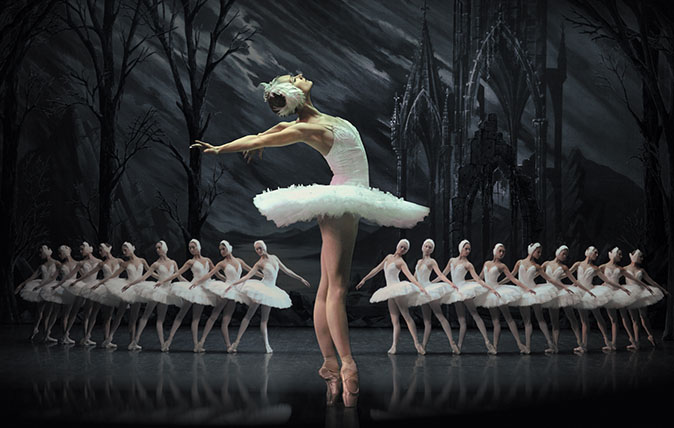

I must have been seven years old when I last saw Swan Lake. But it was with a childlike wonder, 25 years later, that I watched the St Petersburg Ballet Theatre’s latest production at the London Coliseum.
The music, performed by the English National Opera, was transporting and, as I always find with Tchaikovsky (perhaps due to hours spent watching Sleeping Beauty on repeat as a child), easy to love.
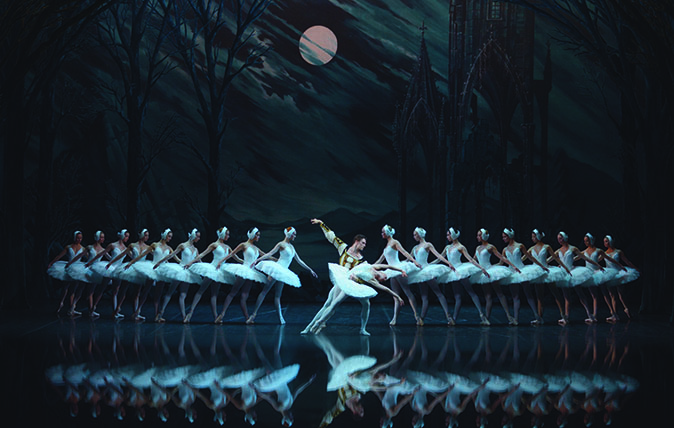
As traditional as they come, this production of Swan Lake is produced by those who know it best. The set design, with enormous painted trees, undulating countryside, a palatial castle and the spooky lake, is as glorious and rich in colour as it must have been in the days when Tsar Nicolas II attended the ballet, although he was probably more interested in gazing at his beloved, Mathilde Kschessinskaya, the first ballerina to wear a black costume in the role of Odile.
Indeed, although the ballet was first performed in Moscow in 1877, it wasn’t until the 1940s that the sorcerer’s duplicitous daughter was first referred to as the Black Swan.
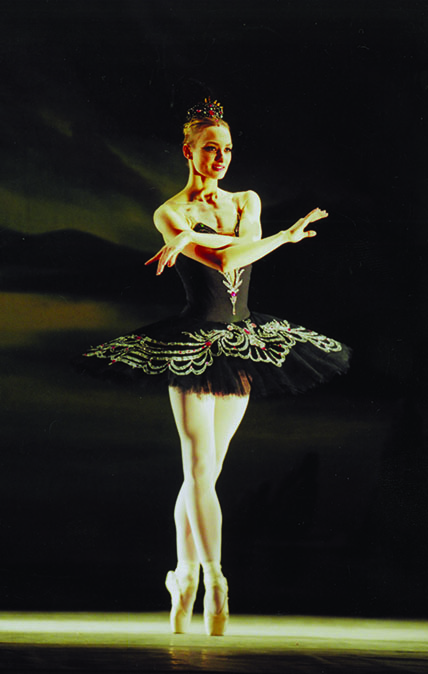
Today’s award-winning White/Black Swan, Irina Kolesnikova, has held the post of prima ballerina for the St Petersburg Ballet since 2001. Despite the gilded opulence of the production, she was most mesmerising of all, with limbs that undulate like ribbons underwater, exquisite control and an elegance that demands adoration.
The jester, impish, amusing and highly skilled, danced by Sergei Fedorkov, was the other standout performer, as well as Rothbart (Dmitriy Akulinin), who was genuinely sinister.
Odette’s sweetness and hypnotising beauty seem primed for tragedy, but that’s not always how the story goes. Sometimes, Odette, condemned to be a swan forever due to Siegfried’s unknowing treachery, kills herself and her lover follows suit; another version has the prince kill Odette with his crossbow by accident; in another, both the prince and sorcerer Rothbart drown while fighting; and another has Rothbart kill Siegfried and make off with Odette (notably performed by Rudolf Nureyev for the Paris Opera Ballet).
Sign up for the Country Life Newsletter
Exquisite houses, the beauty of Nature, and how to get the most from your life, straight to your inbox.
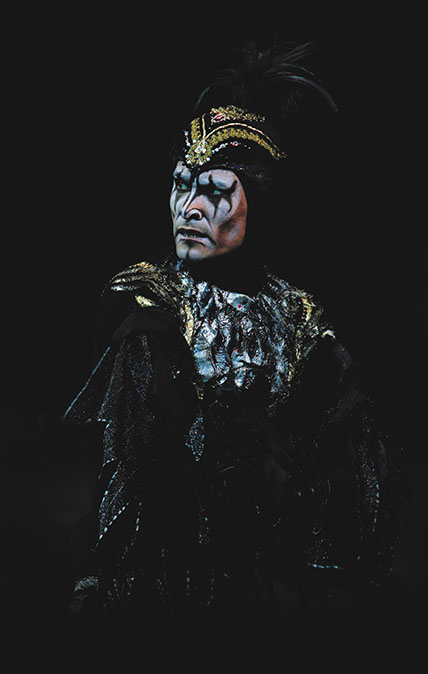
In 1945, a new Mariinsky Ballet production of Swan Lake took a different course, allegedly under Stalin’s direct suggestion. It was thought that the tragic death of innocent lovers was not in keeping with Russia’s new philosophy and that a victory over the evil Rothbart would be a fitting allegory of life in ‘the new and glorious Union of Soviet Socialist Republics’.
The Soviets saw the October Revolution, 33 years previously, as an example of good overcoming evil and it was thought that art should follow suit. Since then, in all Kirov and Bolshoi versions of the ballet Siegfried and his Odette live happily ever after.

I must have seen one of those many tear-jerking versions as a child, because the happy ending in this production surprised and, I hate to say, disappointed me. Tchaikovsky’s music is so powerfully tragic, it seems a shame to ignore it, but the St Petersburg company can hardly be at fault for my preference.
Swan Lake is at the London Coliseum, London WC2, until September 2, for a short spell of 16 performances (following seasons in Spain, Germany, Belgium, The Netherlands, Ireland, France, Italy, Austria, USA, Brazil, Turkey, South Africa, South Korea, New Zealand, Japan, China, Macau, Singapore, Hong Kong, Taiwan and Australia). To book, visit www.londoncoliseum.org.
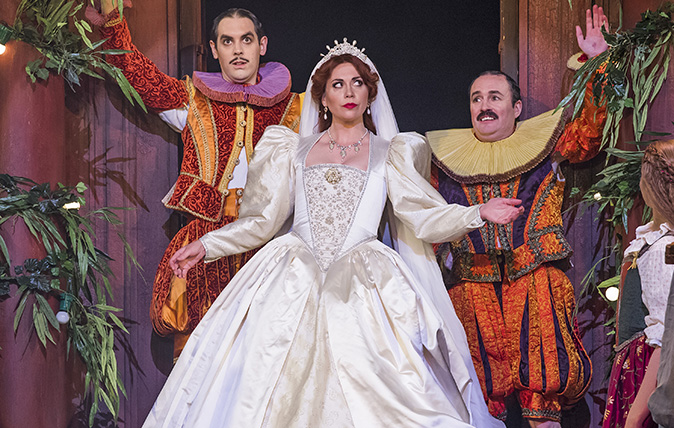
Kiss me, Kate at the London Coliseum: Not 'better' than Shakespeare – but certainly more enjoyable to watch

The Billies: Country Life's 2017 theatre awards, from best play to Ayckbourn's 'crushing disappointment'
After watching new productions at a rate of about four a week, our theatre critic Michael Billington presents the brilliantly
Annunciata grew up in the wilds of Lancashire and now lives in Hampshire with a husband, two daughters and an awful pug called Parsley. She’s been floating round the Country Life office for more than a decade, her work winning the Property Magazine of the Year Award in 2022 (Property Press Awards). Before that, she had a two-year stint writing ‘all kinds of fiction’ for The Sunday Times Travel Magazine, worked in internal comms for Country Life’s publisher (which has had many names in recent years but was then called IPC Media), and spent another year researching for a historical biographer, whose then primary focus was Graham Greene and John Henry Newman and whose filing system was a collection of wardrobes and chests of drawers filled with torn scraps of paper. During this time, she regularly gave tours of 17th-century Milton Manor, Oxfordshire, which may or may not have been designed by Inigo Jones, and co-founded a literary, art and music festival, at which Johnny Flynn headlined. When not writing and editing for Country Life, Annunciata is also a director of TIN MAN ART, a contemporary art gallery founded in 2021 by her husband, James Elwes.
-
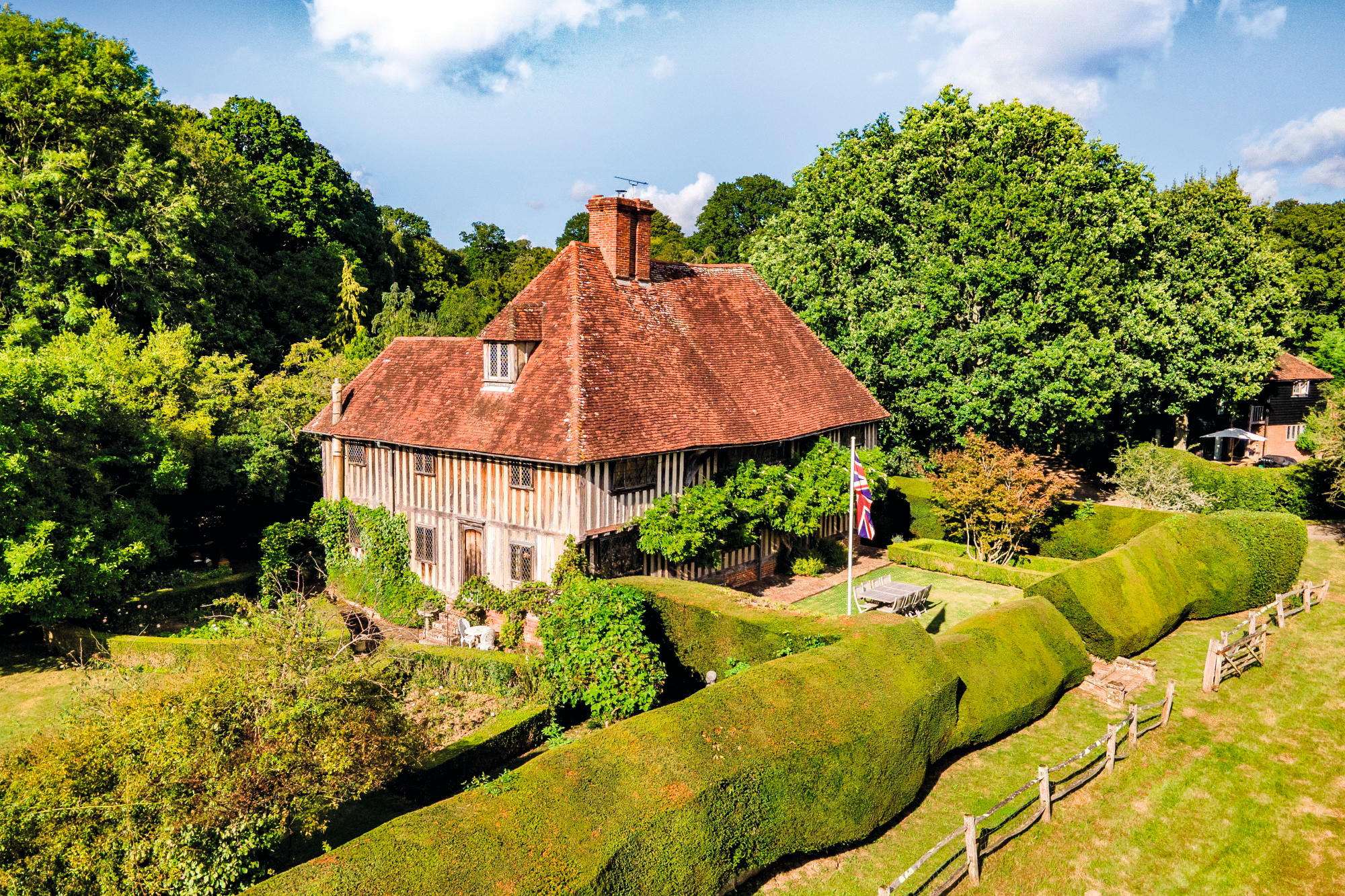 A mini estate in Kent that's so lovely it once featured in Simon Schama's 'History of Britain'
A mini estate in Kent that's so lovely it once featured in Simon Schama's 'History of Britain'The Paper Mill estate is a picture-postcard in the Garden of England.
By Penny Churchill
-
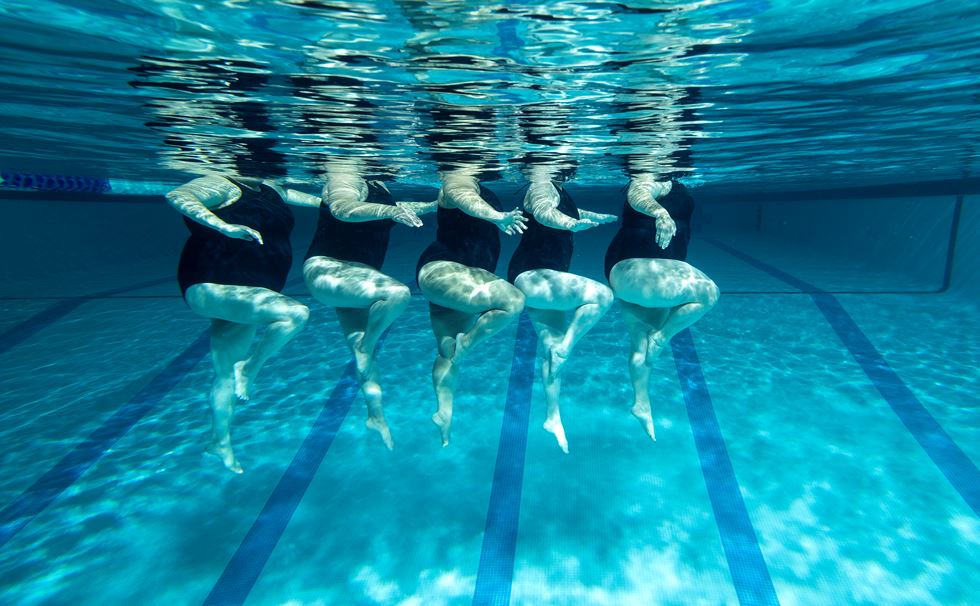 Splash! A Century of Swimming and Style: A whistle-stop history, from the Roman Baths to Hampstead Heath
Splash! A Century of Swimming and Style: A whistle-stop history, from the Roman Baths to Hampstead HeathEmma Hughes dives into swimming's hidden depths at the Design Museum's exhibit in London.
By Emma Hughes